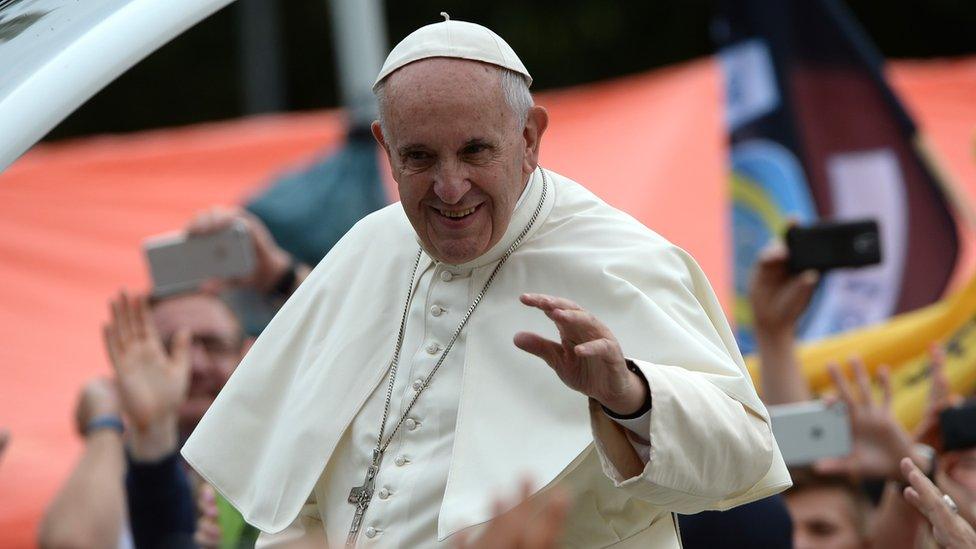Poland Catholics hold controversial prayer day on borders
- Published
Tens of thousands prayed in numerous locations around Poland's borders
Tens of thousands have taken part in a controversial prayer day in Poland.
Catholics were encouraged to go to designated points along the country's borders for a mass rosary prayer for the salvation of Poland and the world.
Church leaders say the event is purely religious, but there are concerns it could be seen as endorsing the state's refusal to let in Muslim migrants.
The feast day marks the anniversary of a Christian victory over Ottoman Turks at the sea battle of Lepanto in 1571.
People were bussed in from more than 300 churches to points all along the border.
They stood in lines, some on beaches on the Baltic Sea, some in fields and some in towns.
"We come to the border of Poland to pray for the Poles and for the whole world," said one woman.
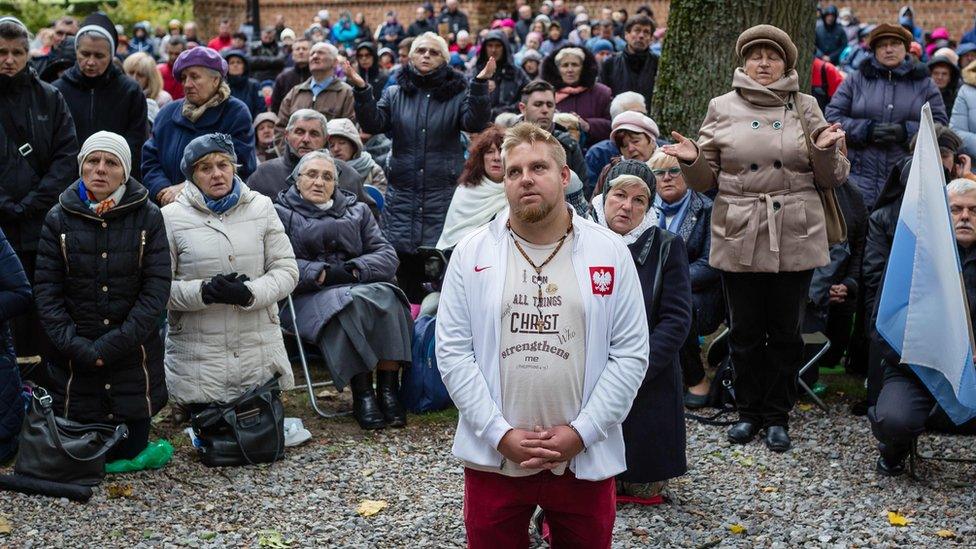
Many people said they were praying for their Catholic faith
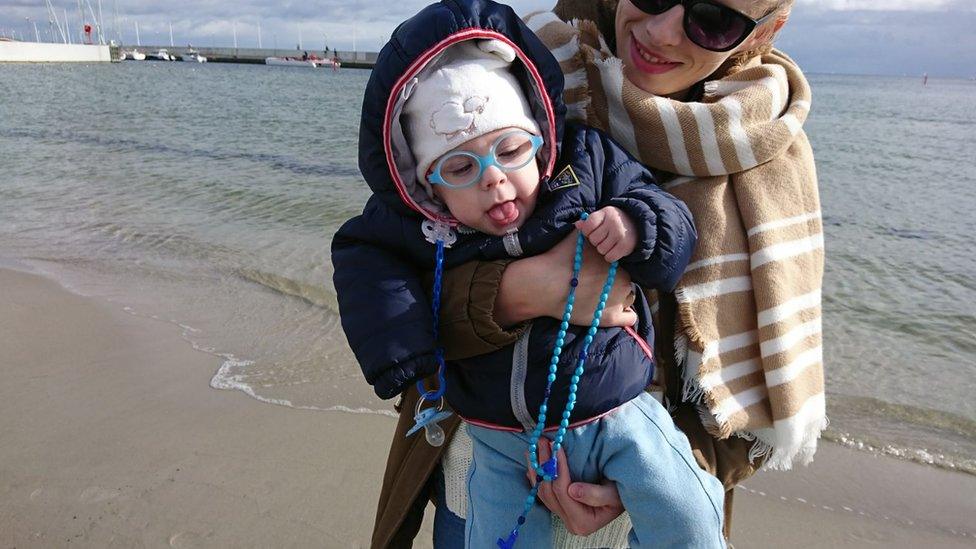
Several hundred took part in the port of Gdynia
"We want our Catholic faith to continue, to keep our children safe, that our brothers from other countries can understand that our faith is unwavering and that we feel safer, not only in Poland but also in the world."
Mateusz Maranowski, a Polish radio journalist, said he had come out to thank the Virgin Mary for his child, who was born prematurely.
He said about 300 people took part in the event in the sea port of Gdynia.
"At first I wanted to pray alone on the beach but it turned out that many people from nearby parishes came out to the beach to take part in the... event," he said.
'Encompass the world'
Halina Kotarska, 65, said she was expressing thanks for the survival of her son in a car crash, but also praying for the survival of Christianity in Europe.
"Islam wants to destroy Europe," she said, quoted, external by the Associated Press. "They want to turn us away from Christianity."
Some priests and Church commentators said the event could be seen as support for the government's refusal to accept Muslim migrants, a policy backed by a majority of Poles.
Organisers said the prayer was not directed against anyone or anything.
The border was chosen, they said, because it symbolised their desire to encompass the world with prayer.
Poland, along with Hungary and the Czech Republic, refused to take part in an EU deal in 2015 to relocate refugees from frontline states Italy and Greece.
The Polish position has put it at odds with the Vatican, with Pope Francis urging greater acceptance of migrants on a visit to Poland last year.
Bishops have urged the government to assist selected Syrian refugees but the plan has failed to secure politicians' backing.
- Published27 September 2017
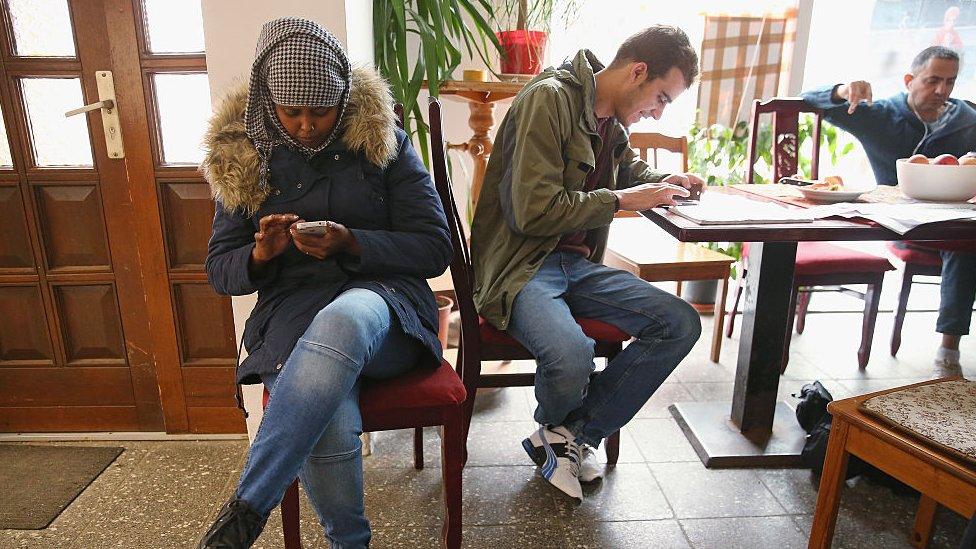
- Published6 September 2017
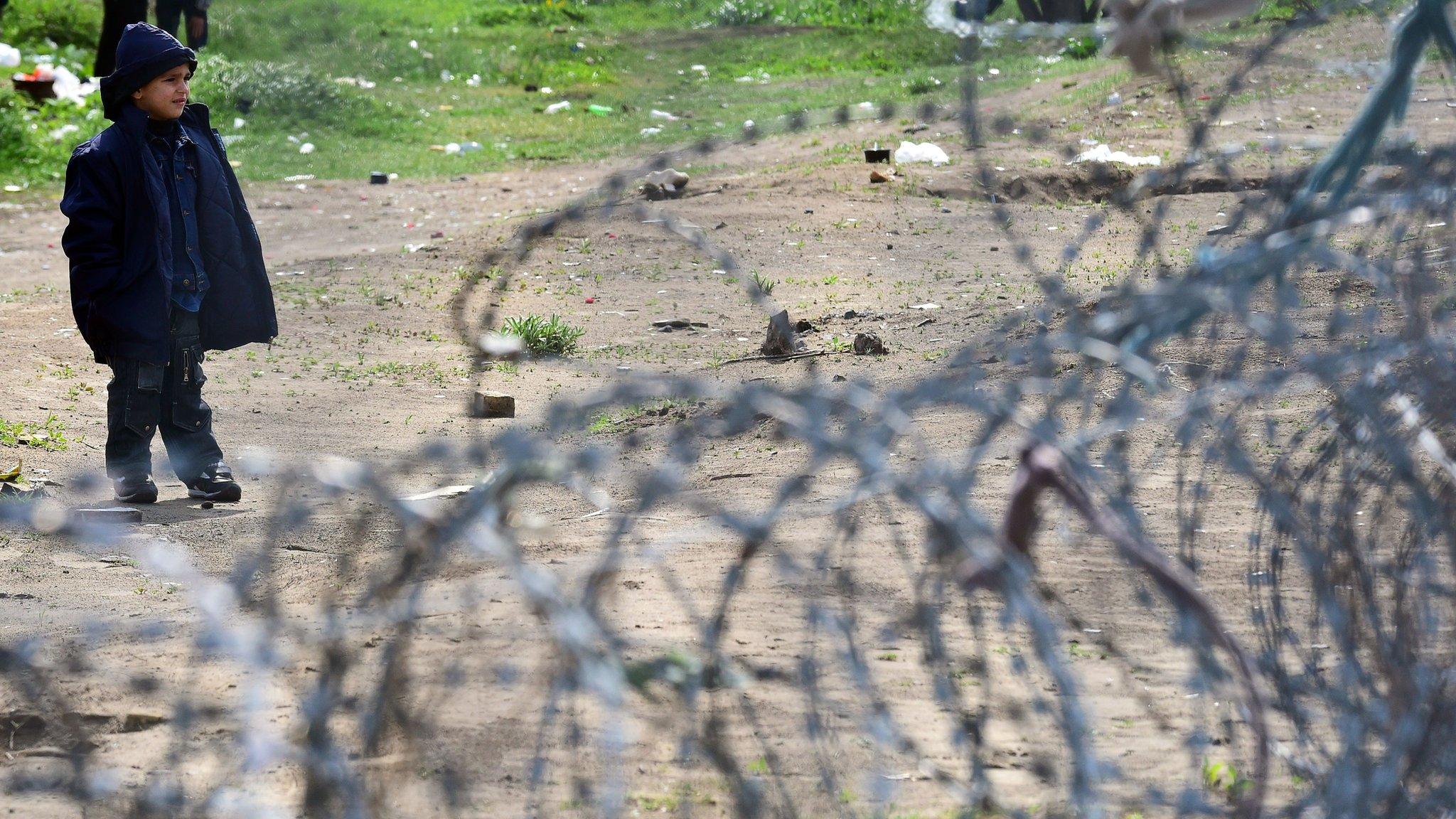
- Published6 September 2017
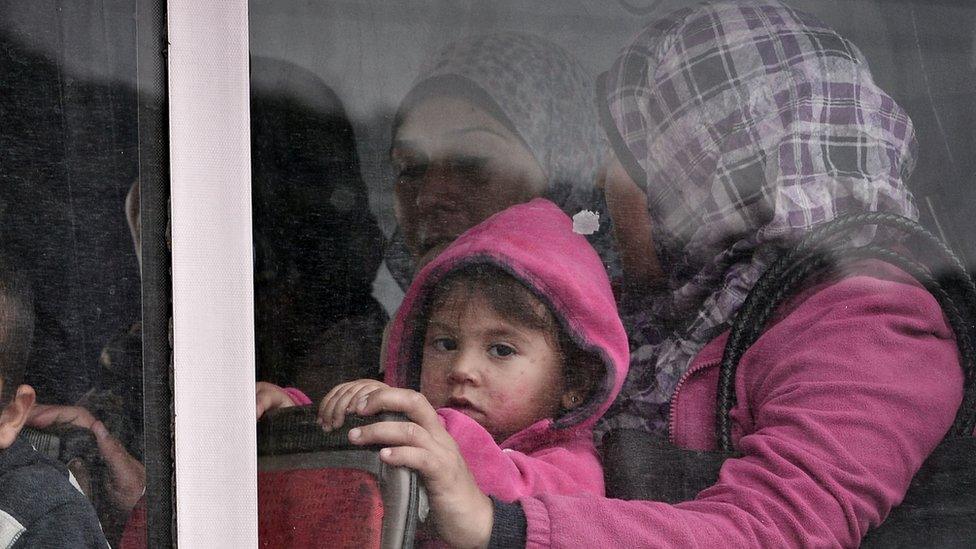
- Published27 July 2016
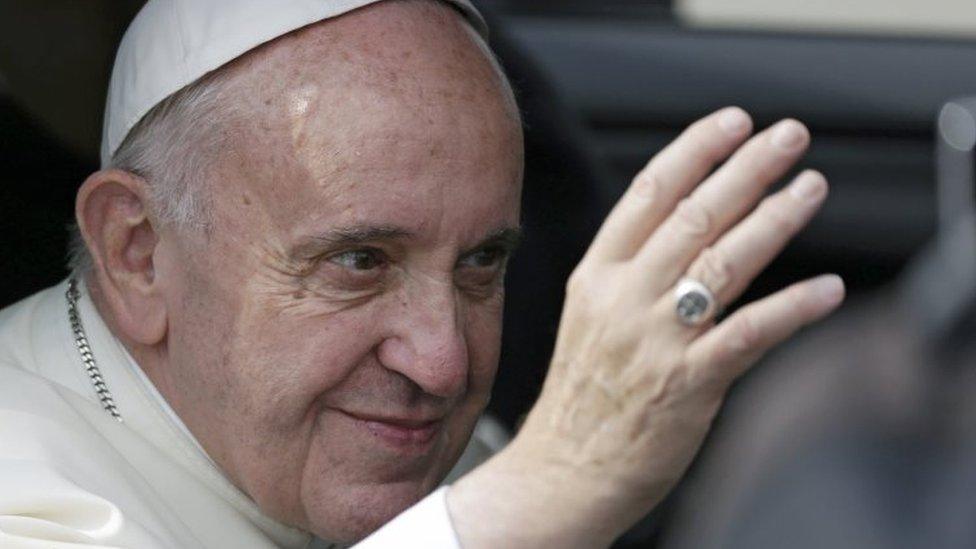
- Published29 July 2016
